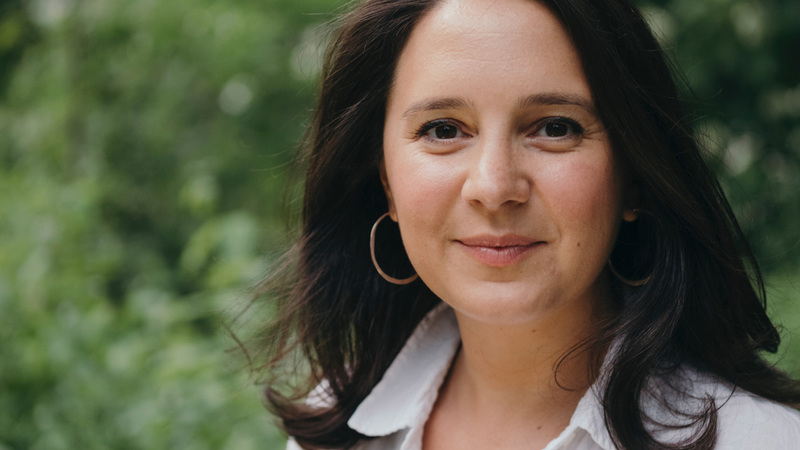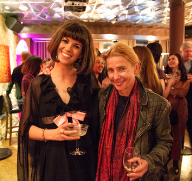You are viewing your 1 free article this month. Login to read more articles.
PRH's Weldon and WriteNow mentees respond to Lionel Shriver
The writers on the first year's intake of the Penguin Random House WriteNow mentorship programme, which champions writers from under-represented communities, have hit back at author Lionel Shriver's Spectator column criticising the publisher's diversity drive.
Meanwhile PRH UK c.e.o. Tom Weldon has written to the Spectator to challenge any suggestion that efforts to improve diversity negates standards.
In an open letter shared with The Bookseller, the 12 aspiring writers from LGBTQ, BAME and other marginalised communities who had places on PRH's 2016 WriteNow scheme have defended the steps PRH has been taking to improve the representation of its workforce and writers in pursuit of its aim to reflect UK society by 2025, saying "such efforts should be celebrated rather than dismissed as mere ‘box-ticking’ exercises".
In the Spectator article Shriver controversially branded Penguin Random House "drunk on virtue" and deduced, having seen its inclusion tracker questionnaire for authors, that it "no longer regards the company’s raison d’être as the acquisition and dissemination of good books".
2016's WriteNow mentees responded: "In claiming this, Shriver seems to view diversity and quality as mutually exclusive categories. We are compelled to ask: does she truly believe that diverse writers are incapable of penning good books? That women of colour are incapable of working editorially? That marketing is a job limited to individuals who identify as cis, white and straight? Does she believe that someone with a disability, or from a working-class background, does not have what it takes to grasp the concepts of plot, dialogue and use of language? If she truly does believe these things, we ought to be having a very different conversation."
The writers spoke out about how difficult it is to get published - particularly for writers whose experiences are "not deemed to be part of the experience of ‘everybody’" - and criticised Shriver for a lack of imagination in suggesting literary excellence was at risk; the selection process for PRH's WriteNow programme was so rigorous that prospective candidates may well have had an easier time getting into Oxford, the signatories of the letter argued.
2016’s WriteNow cohort
"It’s incredibly difficult to get published; Shriver has said so herself. Even more so when either the community you come from, or the material you are writing about, or both, are not deemed to be part of the experience of ‘everybody’, but instead part of some sort of outsider enclave," the writers said.
"Getting onto one of Penguin Random House’s schemes is a competitive experience. Over 2,000 applications were made to WriteNow in 2016, and over 1,700 in 2017. Across both years, a total of 23 writers were selected for the mentoring scheme – roughly 0.6% of applicants. In context: statistically you are much more likely to get into Oxford than onto a Penguin Random House mentoring scheme. Therefore it’s hardly the indiscriminate box-ticking process that Shriver so unimaginatively envisages."
Diversity is a 'mid-point', the 12 writers agreed with Shriver on, after the author referenced a quote by New York Times columnist David Brooks in her piece. Considering the 'endpoint' for them to be "where diversity is so automatic that we don’t even need to consider it, where the publishing industry reflects the diversity of the population without any particular efforts being made, because we all have access to the same levels of education, financial stability, and ease of opportunity", the writers commented: "However, as Shriver is apparently unaware, that point is still a long way off."
Drawing attention to her win of the Orange Prize for Fiction, a prize Shriver has previously labelled "problematic", but attended the party for last week, the letter closed: "Prizes for women’s fiction have not lapsed into rewarding mediocrity because men are excluded from applying for them. Why should trying to reflect the reality of society lead to a decline in standards? Good books – for everybody – means by everybody too. We eagerly look forward to competing with Shriver on the shelf."
Rebecca Pizzey, who organised and co-signed the letter alongside fellow mentees Nels Abbey, Nazneen Ahmed, Charlene Allcott, Elizabeth-Jane Burnett, Chris Brougham, Katie Hale, Manjeet Mann, Emma Morgan, Geraldine Quigley, Emma Smith-Barton and Benjamin G Wilson, told The Bookseller they had been "furious" when they read Shriver's comments and had wanted to address them head on.
"We were furious. It's such an image of privilege to say things like that and to discount all of our hard work as people from people from underrepresented backgrounds, who have got onto this programme on merit, as a mere box-ticking exercise. It was infuriating and upset some of us as well," Pizzey said. "We wanted to come together immediately and say Penguin has done a lot for us and we don't think they're just doing it to be 'virtuous'; they know we have stories worth telling."
Separately Weldon has written to the Spectator to tackle what he termed "the assertion that diversity means either a dilution of quality or a uniformity of output" and to argue "talent and diversity are not mutually exclusive", with the letter also posted on the PRH website.
"Our goal for our new employees and authors to reflect UK society by 2025 is an ambition, not a quota. This is not about publishing writers purely because of who they are or where they come from. We publish – and will continue to – on talent first and foremost," Weldon wrote. "However, it is widely acknowledged that some authors face more barriers than others in getting published. Through our efforts to make our books more representative we are casting the net wider to catch the voices which may have been missed."
Furthermore he stressed the commercial imperatives behind PRH's goal.
"This isn’t just about doing the right thing. After all, we are a commercial business, not a charity," said Weldon "A business that is built on connecting stories and ideas with audiences all over the world. For us, publishing more diversely is not just a moral imperative but a commercial opportunity, enabling us to reach new and different readers."
He added: "Books are a portal to enter new worlds, to inhabit someone else’s shoes, to open your eyes to new perspectives. In a world which is becoming more and more polarised and where we increasingly exist in echo chambers, it has never been more important to hear – and publish – different voices."
Since the launch of WriteNow, at least five of its mentees have been offered publishing contracts with PRH, including open letter signatory Allcock whose “raw, honest and hilarious re-coming of age story” about call-centre worker Martha was snapped up by Transworld at the end of last year.
WriteNow, currently in its second year, was devised with support from developmental charities Spread the Word in London, New Writing North in Liverpool, Writing East Midlands and UNESCO City of Literature in Nottingham and in partnership with national charity Book Trust. As well as providing the chance for writers to get on PRH's year-long mentorship programme, it provides the opportunity for aspiring authors and illustrators from across the country to learn more about how to get their book published and receive personalised one-on-one feedback from an editor or designer at regional workshops. 2018's WriteNow programme, currently open for submissions until 9th July, also welcomes illustrators.
Read the letter in full here.


















